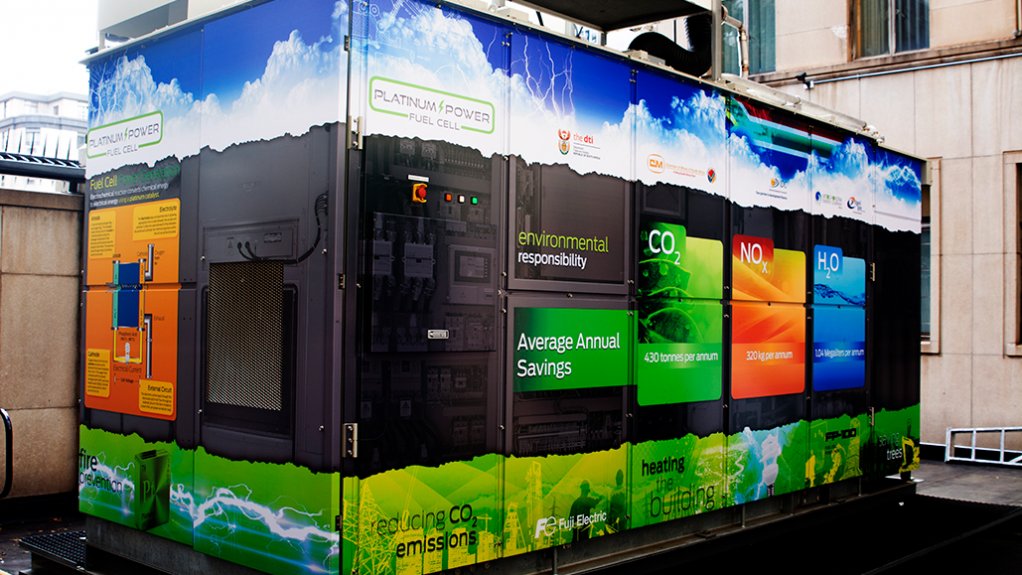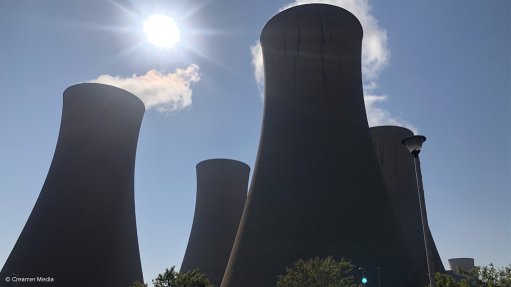Hydrogen vision paves way for green technology transformation


FUEL CELL South Africa aims to develop its manufacturing capability in fuel cell and electrolyser components
Embracing green technologies, particularly hydrogen, offers a unique opportunity for South Africa to drive its reindustrialisation efforts, says hydrogen fuel cell developer Mitochondria.
The company highlights that this opportunity will drive the transition to a sustainable and low-carbon economy, while creating economic growth, reducing carbon emissions and enhancing the nation’s position globally.
To secure this brighter future, South Africa aims to develop its manufacturing capability in fuel cell and electrolyser components. The goal is to capture a substantial share of the projected $40-billion value chain by 2050, which will boost local industries and create jobs, Mitochondria notes.
South Africa intends to meet this goal through distributed power generation, which will use green hydrogen as a clean energy source and drastically reduce reliance on fossil fuels for electricity production. Powering fuel cells with alternative gases, such as liquefied petroleum gas and liquefied natural gas, is also an option for decarbonisation.
Further, incorporating green technologies into South Africa’s reindustrialisation process offers significant advantages, such as addressing the country’s major pollution sources, with the manufacturing, mining and the industrial sectors contributing 84% of emissions.
“By embracing green solutions, such as fuel cells, South Africa can decarbonise existing industries and reduce operational emissions while providing flexible baseload power with lower emissions,” Mitochondria says.
Additionally, the company notes this transition enhances the nation’s global competitiveness by avoiding carbon border adjustment mechanism costs and fostering sustainable economic growth.
Mitochondria explains this shift towards green technologies aligns with South Africa’s
commitments under the Paris Agreement and offer multifaceted benefits, adding that its fuel cell, for instance, contributes significantly to many of the United Nations’ Sustainable Development Goals (SDGs) by ensuring affordable, reliable and sustainable energy access by 2030.
“This accomplishment addresses numerous SDGs, including poverty eradication, health and wellbeing, resilient infrastructure, safe and sustainable cities, climate change mitigation, and terrestrial ecosystem protection,” Mitochondria notes.
Localisation
Fuel cell and electrolyser technologies are playing a pivotal role in fuelling industry growth and job creation in South Africa. As the nation transitions toward a low-carbon society, it is imperative for organisations in this sector to prioritise localising their operations and value chains.
Mitochondria holds localisation as one of its core business principles, aiming to stimulate the local economy where it operates.
“We have undertaken a comprehensive Localisation Study to identify the parts of our value chain that can be sourced locally,” Mitochondria says, explaining that its long-term strategy is designed to localise a substantial 93% of its value chain over a period of five years.
Moreover, the company has initiated a supplier development programme to empower those who were previously excluded from mainstream economic activity.
This commitment to localisation has the potential to create 4 000 indirect jobs across its value chain once Mitochondria opens its manufacturing facility, which it says will “exemplify the transformative power of reindustrialisation through the development of green technology industries”.
Hydrogen & Smart Cities
Smart cities aim to harness technology and data to enhance efficiency and residents’ quality of life, capitalising on the opportunities presented by the Fourth Industrial Revolution.
Similarly, “hydrogen cities” revolve around integrating hydrogen into every facet of urban life, creating sustainable urban environments.
The infrastructure and technological requirements for hydrogen cities encompass solar photovoltaic plants, hydrogen production facilities, hydrogen pipelines, fueling stations and fuel cells.
The primary goal of hydrogen cities is to achieve net-zero emissions, and, as urbanisation continues, “hydrogen cities present a viable option for regions lacking electricity access”.
The global readiness for hydrogen as a fuel has rapidly evolved, driven by factors such as the Russian-Ukraine conflict, increasing energy challenges in Europe, and the urgent need for decarbonisation, Mitochondria says.
“While hydrogen does carry risks, these can be safely handled. Governments and regulatory bodies must establish codes and standards for hydrogen systems. Contrary to belief, hydrogen can be transported in existing pipelines with some modifications,” the company says.
It adds that the costs for hydrogen production and storage are decreasing, owing to rising demand, and on-site production technologies are reducing the need for transport.
“South Africa has the potential to become a major hydrogen production hub, and globally the adoption of hydrogen as an energy source is accelerating,” Mitochondria concludes.
Article Enquiry
Email Article
Save Article
Feedback
To advertise email advertising@creamermedia.co.za or click here
Announcements
What's On
Subscribe to improve your user experience...
Option 1 (equivalent of R125 a month):
Receive a weekly copy of Creamer Media's Engineering News & Mining Weekly magazine
(print copy for those in South Africa and e-magazine for those outside of South Africa)
Receive daily email newsletters
Access to full search results
Access archive of magazine back copies
Access to Projects in Progress
Access to ONE Research Report of your choice in PDF format
Option 2 (equivalent of R375 a month):
All benefits from Option 1
PLUS
Access to Creamer Media's Research Channel Africa for ALL Research Reports, in PDF format, on various industrial and mining sectors
including Electricity; Water; Energy Transition; Hydrogen; Roads, Rail and Ports; Coal; Gold; Platinum; Battery Metals; etc.
Already a subscriber?
Forgotten your password?
Receive weekly copy of Creamer Media's Engineering News & Mining Weekly magazine (print copy for those in South Africa and e-magazine for those outside of South Africa)
➕
Recieve daily email newsletters
➕
Access to full search results
➕
Access archive of magazine back copies
➕
Access to Projects in Progress
➕
Access to ONE Research Report of your choice in PDF format
RESEARCH CHANNEL AFRICA
R4500 (equivalent of R375 a month)
SUBSCRIBEAll benefits from Option 1
➕
Access to Creamer Media's Research Channel Africa for ALL Research Reports on various industrial and mining sectors, in PDF format, including on:
Electricity
➕
Water
➕
Energy Transition
➕
Hydrogen
➕
Roads, Rail and Ports
➕
Coal
➕
Gold
➕
Platinum
➕
Battery Metals
➕
etc.
Receive all benefits from Option 1 or Option 2 delivered to numerous people at your company
➕
Multiple User names and Passwords for simultaneous log-ins
➕
Intranet integration access to all in your organisation



















